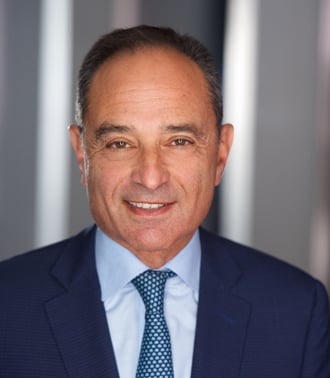Dealmakers Q&A: Kaye Scholer's Mel Cherney
As a participant in Law360's Q&A series with dealmaking movers and shakers, Mel Cherney shared his perspective on five questions:
Q: What's the most challenging deal you've worked on, and why?
A: The most challenging deals I have worked on have been those involving multiple jurisdictions and multiple parties. This is because the issues grow exponentially as the different legal regimes and cultural and legal systems interact.
In one such transaction, I represented a U.S. public company that exercised a buyout option in a joint venture agreement that it had entered into with an Italian party and a U.K. party. First, we needed to negotiate at length (for months) with the Italian partner and its Italian lawyers; then the UK partner preempted our agreement to buy out the Italian party by exercising its contractual right of first refusal; we then were required to negotiate for a further period of months with the U.K. party. Eventually we agreed upon and then implemented a much larger worldwide venture with the U.K. party to combine all of the parties' respective worldwide operations in approximately 50 countries. This, in turn, involved many local laws, lawyers and executives on both sides of the transaction including many late nights and early mornings to deal with the time differences around the world. From start to finish, the transaction took over a year to complete.
Q: What aspects of regulation affecting your practice are in need of reform, and why?
A: My practice is largely private company M&A, which does not have too much of a regulatory overlay.
Q: What upcoming trends or under-the-radar areas of deal activity do you anticipate, and why?
A: The trend that many people have long expected but which has not yet occurred is an uptick in interest rates that will trigger financial distress for highly leveraged companies, a consequent wave of restructuring and distressed M&A and, quite possibly, a reduction in both M&A and debt and equity financing activity levels. Only the Federal Reserve, of course (and possibly not even the Fed), can predict when that might occur. Thus far, the feared "impending wall of maturities" has often been discussed but has not yet occurred, as companies have been able to refinance their debt on favorable terms and at lower interest rates. At some point, however, the interest rate and refinancing environment will become more difficult and expensive, and the consequences for the deal environment could be profound.
Q: What advice would you give an aspiring dealmaker?
A: Place into proper perspective any legal issues that might otherwise slow down or scuttle a transaction that makes economic sense for your client. As lawyers, we are trained to identify and seek to mitigate risks; that is fine, but we should not let that role overwhelm the possible commercial benefits of the transaction to the client. A dealmaker should of course advise his or her client about the risks and the issues in a transaction but the experienced dealmaker must go a step further to evaluate for the client just how serious these risks are in the context of what is "market" and what would be reasonable to accept in the context of the transaction. Moreover, it is critical to remember that the deal is not about the lawyers, it's about the client and the client's needs – a dealmaker should never let his or her ego or emotions affect the conduct of negotiations.
Q: Outside your firm, name a dealmaker who has impressed you, and tell us why.
A: Marc Weingarten of Schulte Roth and Zabel. Marc embodies the points I described above.
The opinions expressed are those of the author and do not necessarily reflect the views of the firm, its clients, or Portfolio Media Inc., or any of its or their respective affiliates. This article is for general information purposes and is not intended to be and should not be taken as legal advice.

